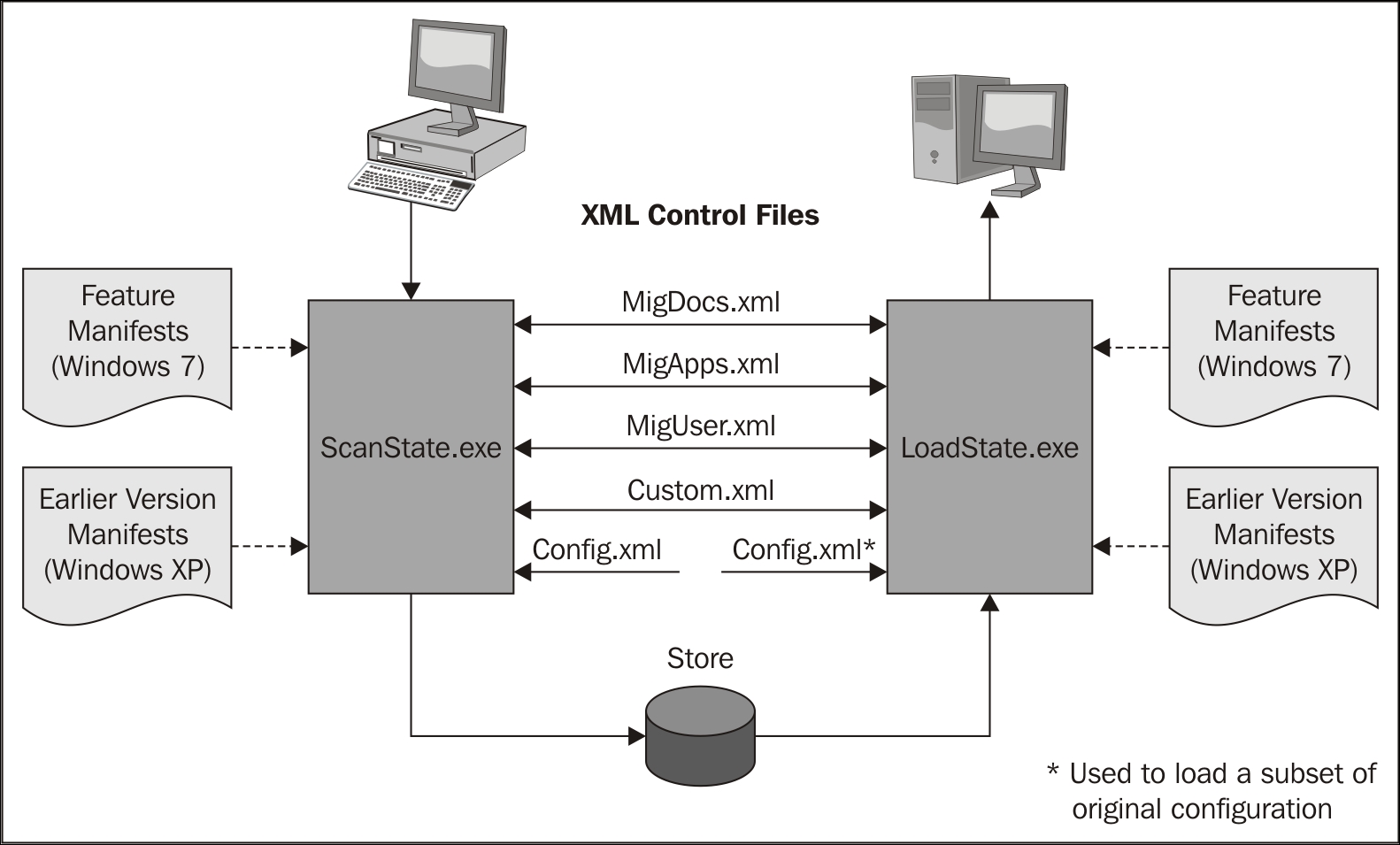How USMT works
At first glance, USMT with its various executables looks complex and confusing. We will explain the basics of USMT, the role of included XML files, and give insight to the ScanState and LoadState process with its steps and rule processing. With this knowledge, using USMT will be less confusing.
USMT basics
USMT 5.0 and newer consists of the following components:
scanstate.exeloadstate.exeusmtutils.exeThe
MigDocs.xml,MigApps.xml, andMigUser.xmlmigration filesThe downlevel and replacement manifests for Windows XP, Windows Vista, and Windows 7
Various libraries and supporting files
The interactions between these components are shown in the following figure:

USMT uses a two-part migration process consisting of gather and restore. The gather, which can be done in online and offline mode, uses the command-line scanstate.exe to collect user and computer settings and data based on XML files included with USMT, included in the operating system, and provided by the customer.
The...























































